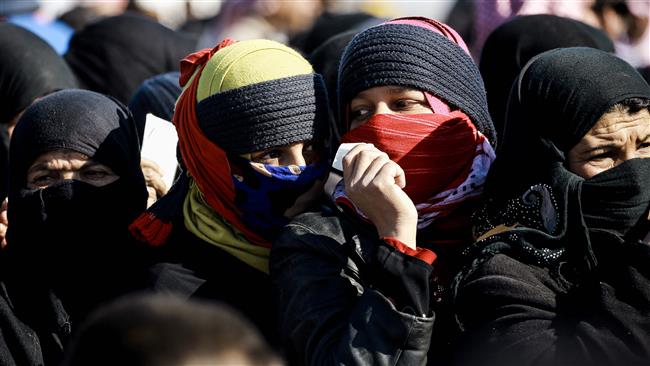Russia forced US’s hand on Daesh: Academic
Press TV has conducted an interview with Anthony Hall, a professor of globalization at the Lethbridge University, about the start of Iraqi military operations to liberate the city of Fallujah from the Takfiri Daesh terrorist group.
A rough transcription of the interview appears below.
Press TV: Why don’t you tell us first about the significance in your opinion of this move and this attack on Fallujah, its timing and its possible outcome?
Hall: Of course, the name Fallujah resonates in the United States and the United States is involved in this, the air force will be involved. So, there’s a build-up here. Certainly, Prime Minister Abadi needs some kind of signal to his own citizens in Iraq. He is not popular and of course Muqtada al-Sadr is very popular and there is big demonstrations showing that popularity. So, the government of Iraq is working with the United States and Iranian forces and other forces on this very symbolically-important removal of Daesh from Fallujah.
Of course, the United States will have people on both sides, Saudi advisors for instance with Daesh. Russia sort of has forced United States’ hand to really be seen to be fighting Daesh, because Russia’s intervention in Syria to actually fight Daesh sort of exposed the fraud of the United States’ position, with Israel doing a lot of the direction.
And the double-sidedness of the US position, both within Daesh and fighting Daesh, is something to be contended with if this was authentic. Russia and Iran and Iraq... I mean, there would be some kind of larger coalition here at play, including Russia, I believe.
But Fallujah as I say this resonates, there was such a dramatic demonstration of anti-American sentiment, violence in Fallujah back in 2004. That’s a name imprinted in Americans’ minds. So, there’s a very important political dimension to this campaign both for the US government and for the embattled and largely discredited Iraqi government right now.
Press TV: When it comes to fighting the terrorists on the ground in Fallujah and elsewhere in Iraq, namely the terrorists of the Daesh group, to what extent do you think the American helping hand has been genuine? And what do you think has been the effectiveness of that helping hand?
Hall: Well, of course, the helping hand has worked through proxies, the Saudi proxy, the Turkish proxy; so, there has been a lot of help from the United States through these proxies, to Daesh. Of course, many of the people in Daesh were displaced in the US invasion in 2003-2004, especially those in the Iraqi armed forces. Daesh was in part invented within the US prisons within Iraq. So, there is so much history sort of sieving through this, but of course the way ...
Press TV: Professor Hall, I do appreciate your comment there, that is obviously factual; but what I was trying to drive that is the help that the US-led coalition is supposedly trying to give to the Iraqi central government in their fight against Daesh and terrorists on the ground; to what extent do you think that help has been effective and genuine?
Hall: Well, I think there is a certain spotlight on the United States that exists because of the way Russia intervened. And I think there is some genuineness in this campaign. Both the Iraqi government and the US government would benefit significantly if it was seen Daesh was being displaced from Fallujah as I think could quite possibly happen.
Press TV: And do you consider the participation of the Popular Mobilization forces also very significant here?
Hall: I’m sure it is. And Iraq is a work in progress, and it is important that Iran and the United States are in some degree of communication on these issues and will have some degree of cooperation. And that can only be good internationally on the larger geopolitical scene as far as I’m concerned.
VIDEO | Yemeni forces repel US-British attack, down F-18 Jet
Iran’s capabilities vast; enemy’s ‘maximum pressure’ policies all failed miserably: Senior official
Iran’s economy grew 2.7% y/y in Sep quarter: CBI
VIDEO | Freelancers in Gaza strive to stay online amid genocide
Mikati demands Israel's withdrawal from south Lebanon
Yemeni army strikes Israeli military sites with drones
‘Clock ticking’: UNRWA slams unjustifiable killing of children in Gaza
BP to be sued in Britain for supplying oil to Israel














 This makes it easy to access the Press TV website
This makes it easy to access the Press TV website